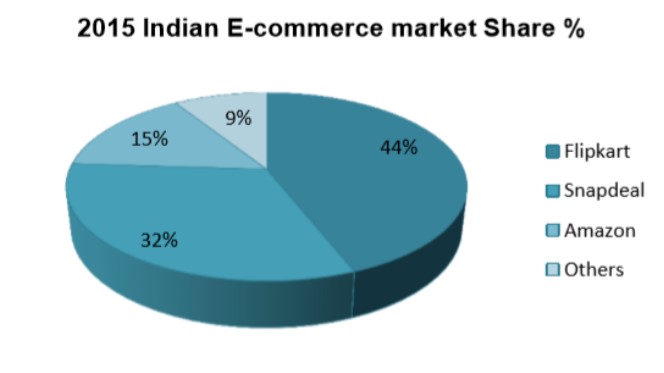China is a huge venue in the global battle for e-commerce dominance, but India is emerging as a major second front in this war, with Walmart scoring a massive $16-billion victory this week as it and rival Amazon vie for 1.3 billion potential customers.
On Wednesday, Walmart agreed to pay some $16 billion for control of India’s largest online retailer, Flipkart. The deal will give Walmart a 77-percent stake in Flipkart, which is valued at $20 billion.
Flipkart has been on Amazon’s radar for years, but Walmart came in with lots of cash thanks to U.S. tax cuts.
In the deal, Japan’s Softbank will sell its $4-billion stake in Flipkart, reporting for a profit of $1.5 billion.
Last week, just when Walmart was nearing a deal with Flipkart, reports emerged that Amazon would seek a 60-percent stake in the company to challenge its rival.
What’s At Stake?
Beyond an economy with 1.3 billion people, there’s plenty at stake in the world’s fastest-growing economy, and Amazon is committing multiple billions to business there.
Now, Google is talking about getting in on the Flipkart investment, too.
India’s e-commerce market could be worth $200 billion by 2026, according to Morgan Stanley. That’s a figure supported by Indian economic research as well. The India Brand Equity Foundation (IBEF) predicts the market could hit the same $200 billion by 2026, up from $38.5 billion as of last year. It’s set to cross the $50-billion market this year already.
“Much growth of the industry has been triggered by increasing internet and smartphone penetration,” IBEF says. Related: Wages Remain Stagnant Despite Full Emploment
The ongoing digital transformation in the country is expected to increase India’s total internet user base to 829 million by 2021, which represents 59 percent of the total population, from 373 million in 2016, according to IBEF. Further, the total number of networked devices in India is expected to hit 2 billion by 2021, up from 1.4 billion in 2016.
Already, cross-border shopping by Indians reached $9.1 billion and should have increased 85 percent year-on-year in 2017. According to market research firm Forrester, online sales in India were worth $21 billion last year.
So, Flipkart means quite a lot, especially based on this chart from Morgan Stanley:

(Click to enlarge)
With the Flipkart acquisition, Walmart gets a massive boost in India.
Pending regulatory approval, the deal should reportedly be completed by year’s-end and solves a big problem for Walmart: Securing a foothold without physical stores.
For Flipkart, it also gives a loss-making company easier to access to the country’s more remote areas. In the fiscal year ending March 2017, Flipkart reported $1.31 billion in losses. So Walmart is about to flip this ‘kart’ around, giving the Indian e-commerce company the right infrastructure and supply chain management to start making money.
For Walmart, it’s big challenge to Amazon, but the real war will be a few years down the road.
Related: How Gold Could Benefit From Soaring U.S. Debt
“A large chunk of the Indian market is infinitely valuable to a company today,” True North private equity partner Haresh Chawla told BloombergQuint. “Walmart grows by 2-3 percent in [the] U.S. It has had tough times in other countries. India was the only market left with growth.”
For now, says Chawla, the Indian market is so big that everyone will be victorious.
“For the next several years, you’ll find that all of them will grow. The market is growing. Consumers want better shopping experience,” he said. But once that period is up, it will be all about who made the right alliances and who has the best technology.
By Fred Dunkley for Safehaven.com
More Top Reads From Safehaven.com:
















